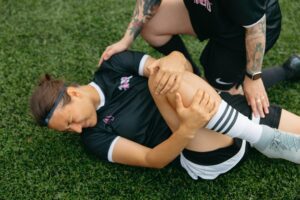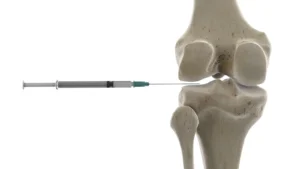The thought of knee replacement surgery can be a significant step, and for many patients, it’s a decision they’re not quite ready to make. This is perfectly understandable. We believe in a patient-centred approach that explores all avenues of care. If you have moderate to severe knee arthritis which would benefit from knee replacement but feel “I’m not ready for a knee replacement,” there are numerous effective non-operative options available to help manage your symptoms and potentially delay the need for surgery.
Understanding why non-operative care is crucial
Non-operative management is the best first-line treatment for knee arthritis.
- Delaying Surgery: For some, these treatments can significantly delay or even negate the need for knee surgery, providing years of pain relief and improved function.
- Optimising Health: Even if surgery becomes necessary later, strengthening muscles, improving mobility, and managing weight through non-operative means can make you a better candidate for surgery and lead to a smoother recovery.
- Personalised Approach: Dr Richmond will tailor a non-operative plan specifically for your condition, lifestyle, and goals, ensuring it aligns with your decision not to immediately pursue a knee replacement.
Comprehensive lifestyle modifications
Simple changes to your daily routine can have a profound impact on knee pain.
- Weight Management: Reducing excess body weight significantly decreases the load on your knee joint, slowing down the progression of knee arthritis and reducing pain. Even a small amount of weight loss can make a big difference.
- Activity Modification: Identifying and avoiding activities that aggravate your knee pain is crucial. This doesn’t mean becoming sedentary, but rather finding lower-impact alternatives (e.g., swimming or cycling instead of running) that still keep you active.
- Appropriate Footwear: Wearing supportive, well-cushioned shoes can help absorb shock and provide better alignment for your knee.
Targeted physical therapy and exercises
A structured physical therapy program is a cornerstone of non-operative knee arthritis management.
- Strengthening Exercises: Building strength in the muscles around your knee (quadriceps, hamstrings, glutes) helps to stabilise the knee joint and reduce stress on damaged areas. A good physiotherapist can guide you through appropriate exercises for your specific condition.
- Flexibility and Range of Motion: Gentle stretching and exercises to maintain or improve your knee’s range of motion can help reduce stiffness and discomfort, which is often a significant issue with knee arthritis.
- Balance Training: Improving balance can enhance stability and reduce the risk of falls, which could exacerbate existing knee problems or lead to new injuries.
Supportive aids and medications
Various other treatments can provide symptomatic relief and support.
- Bracing: Custom or off-the-shelf knee braces can provide stability and support.
- Walking Aids: Using a cane or crutches can reduce the load on a painful knee, offering immediate relief during flare-ups or prolonged walking.
- Joint Injections: Dr Richmond may recommend a steroid joint injection to reduce inflammation and pain directly within the knee joint. While not a permanent solution, this can offer significant temporary relief, allowing you to engage more effectively in exercise and physiotherapy.
- Oral and topical pain relief: Simple pain relief such as paracetamol on a regular basis can reduce pain sufficiently to enable activities you enjoy. Oral anti-inflammatories (as long as you have no contra-indications to their use) and topical anti-inflammatory gels/creams can also benefit some people.
If you are experiencing debilitating knee pain and are exploring your options, including Robotic Knee Replacement, Request a Consultation to discuss this with Dr Richmond.




